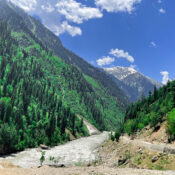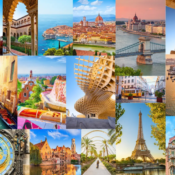
Chikhal Kalo Mud Festival in Goa: A Celebration of Mud, Faith & Fun!!
When we think of Goa, the first picture that pops into mind is usually beaches, parties, seafood, and sunsets. But there’s another side of Goa that not many people know about – a cultural, deeply traditional, and playful side. One of the best examples of this is the Chikhal Kalo festival, also known as Goa’s famous mud festival.
This unique festival takes place every year in the small village of Marcel, about 30 km from Panaji, and it is not about beaches or parties – it is all about mud, rituals, and community bonding. The word “Chikhal Kalo” literally means “mud play” in Konkani, and that’s exactly what happens. People gather together, roll in the mud, play games, sing, dance, and celebrate age-old traditions.
Let’s dive deeper into what makes this mud festival so special.
The Story Behind Chikhal Kalo

The roots of Chikhal Kalo go back over 400 years. It is closely connected with the temple of Devki Krishna and Lord Ravalnath in Marcel. According to locals, the mud play represents the time when young Krishna and his friends used to play in the mud fields of Vrindavan.
The festival also marks the arrival of the monsoon season in Goa. The muddy paddy fields become the playground for villagers, where they celebrate not just the rains but also their cultural identity. It’s not only fun – it’s also a reminder of Goa’s farming traditions, where mud and paddy fields are a part of everyday life.
So in short, Chikhal Kalo is part religious, part cultural, and part playful fun.
How the Festival is Celebrated

The festival usually takes place in July after the first showers of the monsoon. It begins with rituals inside the temple of Devki Krishna and Ravalnath. Priests perform traditional prayers, and idols of the deities are taken out in a grand procession.
Once the rituals are done, the celebrations shift to the nearby paddy fields. And that’s when the real fun begins!
- Mud Games – Villagers, young and old, enter the paddy fields covered in mud and play traditional games. These games include kabaddi, football, tug of war, and even wrestling – but all in thick slushy mud.
- Community Bonding – It doesn’t matter if you’re rich or poor, young or old – everyone is equal here. Covered in mud, there’s no difference between people, which makes the festival even more special.
- Music & Dance – Folk songs are sung, traditional Goan instruments are played, and people dance joyfully, celebrating both faith and nature.
- Religious Touch – The mud games are not just for fun; they are seen as a way of honoring Lord Krishna’s playful spirit.
Imagine hundreds of people laughing, slipping, and sliding in mud while rain drizzles from above – it’s pure joy and chaos mixed together.
The Symbolism of Mud

Mud in the Chikhal Kalo festival is not just dirt. For villagers, it symbolizes:
- Purity & Equality – Everyone looks the same when covered in mud, which reflects the idea of oneness.
- Fertility & Farming – Monsoon and mud are directly linked to Goa’s agriculture, especially rice farming. The festival is like a thanksgiving to Mother Earth for blessing them with rain and fertile soil.
- Playfulness of Krishna – Mud games remind people of Lord Krishna’s childhood days, making it both fun and devotional.
The Food & Festive Vibes

Like every Goan festival, food is a big part of Chikhal Kalo. After the mud games, villagers and visitors enjoy a simple but delicious Goan meal, usually served in the temple premises. Traditional vegetarian dishes like rice, dal, seasonal vegetables, kokum curry, and sweets are shared in a community setting, adding to the warmth of the celebration.
Where & When to Experience It

- Location: Marcel Village, Ponda Taluka, Goa
- Main Temple: Devki Krishna-Ravalnath Temple
- Month: July (dates change each year depending on the Hindu calendar)
If you’re planning to attend, remember this is not a touristy beach party. It’s a traditional, religious festival that welcomes outsiders with open arms – but it requires respect for local customs. Wear simple clothes (that you don’t mind getting muddy), carry a towel, and get ready to embrace the chaos.
Why You Should Experience Chikhal Kalo

Visiting Goa during this festival gives you a chance to see a completely different side of the state. It’s not just about parties and shacks – it’s about traditions, faith, and rural life.
Chikhal Kalo offers:
- A once-in-a-lifetime experience of playing in the mud with locals.
- A deeper connection with Goa’s monsoon culture.
- A chance to witness how festivals bring people together, breaking barriers of age, class, or status.
- An authentic glimpse into traditions that have been alive for centuries.
Final Thoughts
The Chikhal Kalo Mud Festival is proof that celebrations don’t always need glamour, lights, or luxury. Sometimes, all it takes is mud, rain, laughter, and togetherness. It’s messy, it’s playful, it’s spiritual – and it leaves everyone with memories that last a lifetime.
So next time you plan a trip to Goa in the monsoon, skip the beaches for a day and head to Marcel village. Jump into the mud, let go of all worries, and experience a festival that’s as raw and real as it gets.
Because in Goa, the joy is not just in the sun and sand – sometimes, it’s in the mud too.
All Categories
- Adventure
- Australia
- City Tours
- Customized Holidays
- Domestic
- Dubai
- Europe
- Food
- Forex
- Group Holidays
- Honeymoon
- India
- Indonesia
- Informative
- International
- Korea
- Leisure Holidays
- Life Style
- Malaysia
- Mauritius
- philippines
- Pilgrimage
- places to visit
- Remittance
- Singapore
- Thailand
- Things To Do
- Turkey
- Valentine
- Varanasi
- Vietnam
- VISA
- Weekend Getaways
- Wild Camping
Recent Posts
Most Romantic Places to Visit in India This Valentine’s Day 2026!
Beyond Gulmarg & Pahalgam: Discover Kashmir’s Lesser-Known Magical Towns!!
What First-Time Europe Travellers Usually Get Wrong (And How You Can Avoid It)!!
Tags





